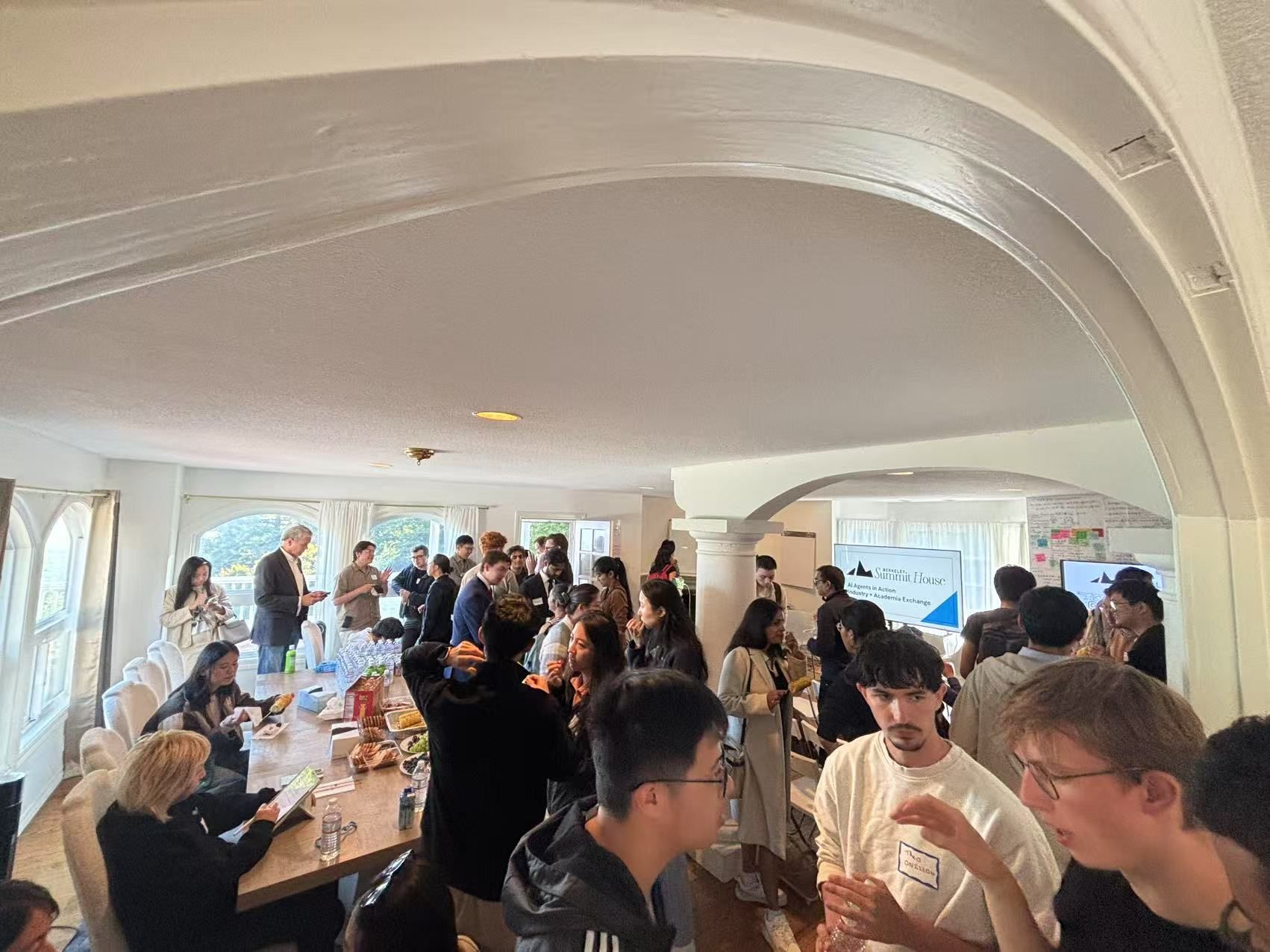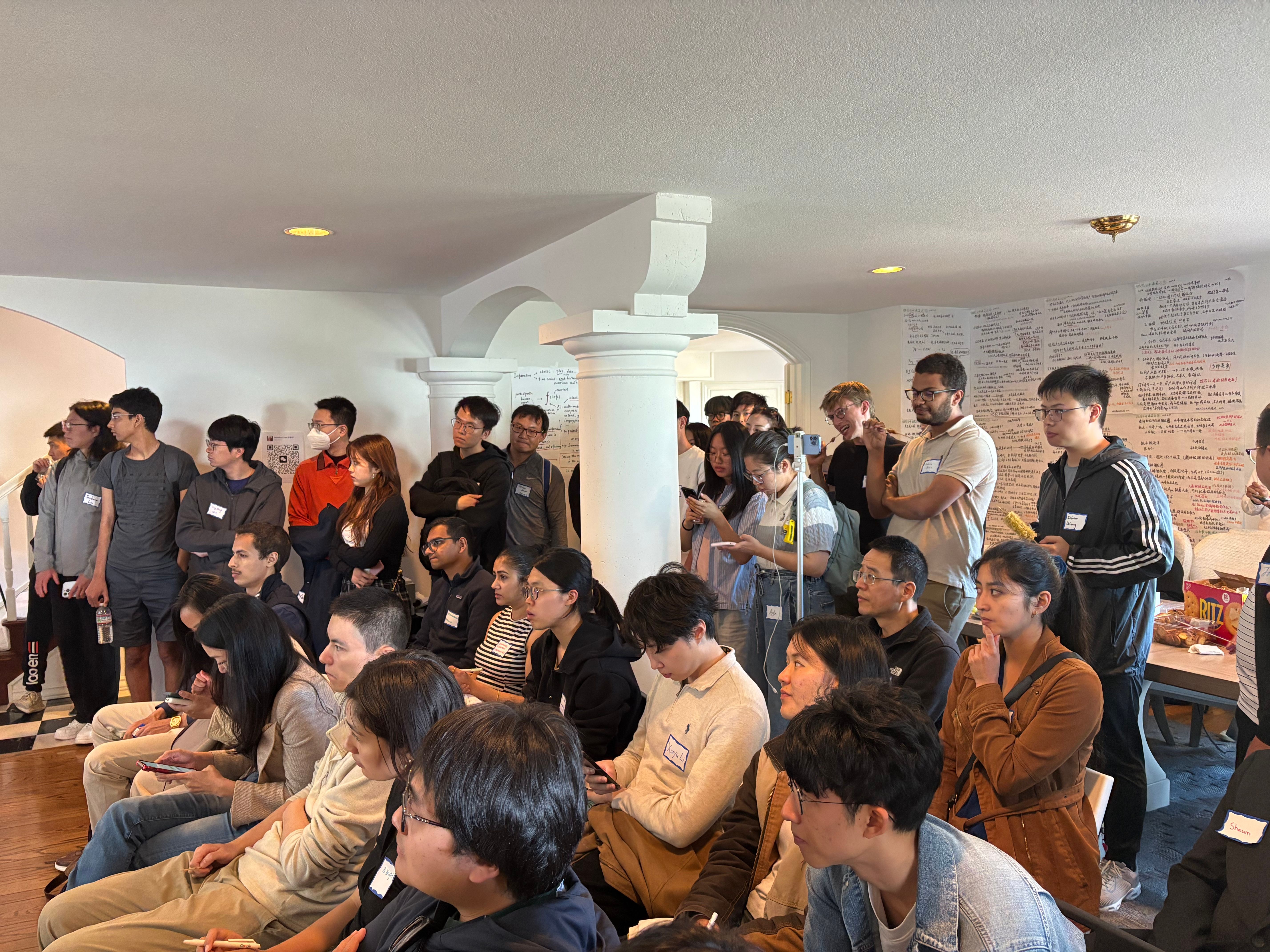Summary
A high-signal panel on the future of AI agents, featuring leading voices from academia and industry exploring robustness, recursive improvement, and standards for real-world deployment.
The panel brought together leading voices in the AI agent space—including Zhou Yu, Alane Suhr, Rebecca Qian, Robert Parker, Vinay Rao, and Shunyu Yao—alongside a technical audience of researchers, founders, and engineers from top academic labs and startups.
1. Robustness Before Demos
- Model brittleness & entropy: Robert Parker noted that small prompt or latency changes can destabilize agent behavior. Without transitive closure across subtasks, multi-step agents risk falling into entropy.
- Agent OS: Parker called for OS-level semantics—shared memory, error correction, formal task graphs—comparable to early operating system breakthroughs.
- Tool-call verifiability: Vinay Rao emphasized the burden of verifying when and how to call external tools, and how to roll back from unreliable outputs.
2. Measuring What Matters
- Beyond leaderboards: Rebecca Qian compared agent evaluation to autonomous driving—it must consider workflows, safety, and real-world dynamics.
- Community benchmarks: Shunyu Yao emphasized shared benchmarks like InterCode and FinanceBench to enable comparable, domain-specific evaluation.
3. Continuous Improvement & Recursive Agents
- Self-adjusting agents: Shunyu Yao and Vinay Rao discussed agents that run tests, refine themselves, and avoid reward hacking through recursive feedback.
- Trusted recursion: Parker pointed to recursive reasoning and parsing as necessary for tasks current LLMs fail at, such as large-scale code refactor.

4. Safety, Standards & Governance
- Brakes & protocols: Zhou Yu called for peer-style agent protocols to reject unsafe calls. Rao likened current systems to “cars without brakes.”
- Full-stack safety: Parker urged that future stacks must enforce process boundaries akin to hardware-level protections.
5. Academia × Industry Collaboration
- Data vs. compute asymmetry: Academia needs access to real-world usage data; startups need long-term evaluation frameworks.
- Joint projects: Collaborative models (e.g., CMU-style) help bridge speculative research and live deployments.
6. Vision & Futures
- Shunyu Yao: Agents as autonomous data scientists
- Rebecca Qian: Oversight agents for scalable evaluation
- Alane Suhr: Decomposable tasks, educational agents
- Zhou Yu: Exponential returns from self-improving agents
- Parker & Rao: Parser-driven recursive agents that understand their limits
Key Takeaways
- Robustness before demos: Stability and task coherence are foundational
- Tool calls cost trust: Each external call requires validation and observability
- Evaluate workflows, not prompts: End-to-end benchmarks matter
- Agent OS is coming: Process semantics > prompt hacks
- Safety accelerates adoption: Brakes don’t slow cars—they enable speed
- Collaboration compounds: Data-sharing and reproducible testbeds benefit all





